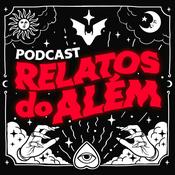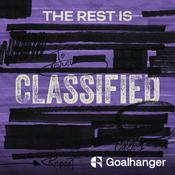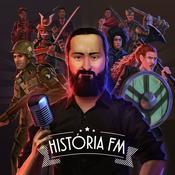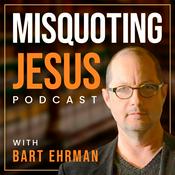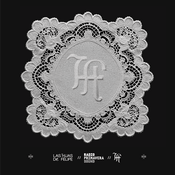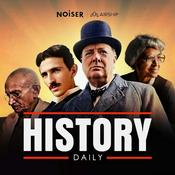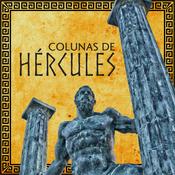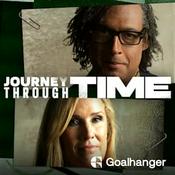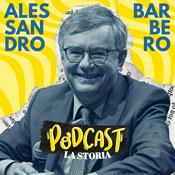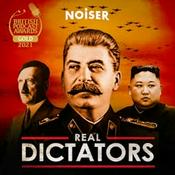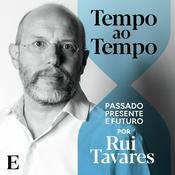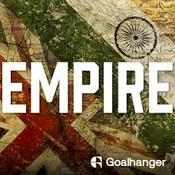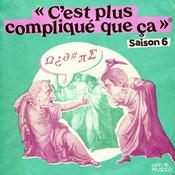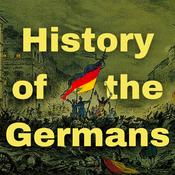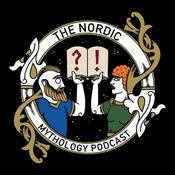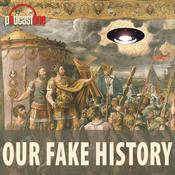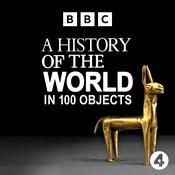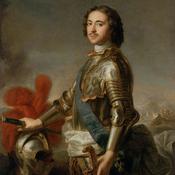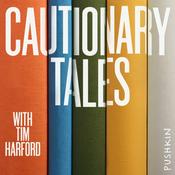120 episódios
- During World War Two, an unconventional special force was formed. Known as the Chindits, they fought behind enemy lines in Burma, now Myanmar during 1943 and 1944 in the war against Japan.
Their leader was the charismatic Orde Wingate, a British Army officer.
This programme is made in collaboration with BBC Archives. It contains outdated and offensive language.
Produced and presented by Gill Kearsley.
Eye-witness accounts brought to life by archive. Witness History is for those fascinated by the past. We take you to the events that have shaped our world through the eyes of the people who were there.
For nine minutes every day, we take you back in time and all over the world, to examine wars, coups, scientific discoveries, cultural moments and much more.
Recent episodes explore everything from the death of Adolf Hitler, the first spacewalk and the making of the movie Jaws, to celebrity tortoise Lonesome George, the Kobe earthquake and the invention of superglue.
We look at the lives of some of the most famous leaders, artists, scientists and personalities in history, including: Eva Peron – Argentina’s Evita; President Ronald Reagan and his famous ‘tear down this wall’ speech; Thomas Keneally on why he wrote Schindler’s List; and Jacques Derrida, France’s ‘rock star’ philosopher.
You can learn all about fascinating and surprising stories, such as the civil rights swimming protest; the disastrous D-Day rehearsal; and the death of one of the world’s oldest languages.
This programme has been updated since the original broadcast to add additional context.
(Photo: The Chindits in 1944. Credit: Getty Images) - On 9 August 1945, the United States dropped an atomic bomb on Nagasaki, Japan, killing at least 74,000 people.
It led to the end of World War Two in Asia, with Japan surrendering to the Allies six days later.
The Nagasaki bomb, alongside the Hiroshima bomb on 6 August, remain the only times nuclear weapons have been used in a war.
In an interview he gave to the BBC in 1980, British prisoner of war Geoff Sherring describes how he survived the explosion. Produced and presented by Rachel Naylor.
This programme was made in collaboration with BBC Archives.
Eye-witness accounts brought to life by archive. Witness History is for those fascinated by the past. We take you to the events that have shaped our world through the eyes of the people who were there.
For nine minutes every day, we take you back in time and all over the world, to examine wars, coups, scientific discoveries, cultural moments and much more.
Recent episodes explore everything from the death of Adolf Hitler, the first spacewalk and the making of the movie Jaws, to celebrity tortoise Lonesome George, the Kobe earthquake and the invention of superglue.
We look at the lives of some of the most famous leaders, artists, scientists and personalities in history, including: Eva Peron – Argentina’s Evita; President Ronald Reagan and his famous ‘tear down this wall’ speech; Thomas Keneally on why he wrote Schindler’s List; and Jacques Derrida, France’s ‘rock star’ philosopher.
You can learn all about fascinating and surprising stories, such as the civil rights swimming protest; the disastrous D-Day rehearsal; and the death of one of the world’s oldest languages.
(Photo: The Nagasaki bomb on 9 August 1945. Credit: Universal History Archive/Universal Images Group/Getty Images) - Between September 1943 and June 1944 in World War Two, the Italian capital Rome was occupied by German soldiers.
Italy had surrendered and thousands of Allied prisoners of war had escaped from internment camps in the country.
An Irish priest, Monsignor Hugh O’Flaherty, who was working for the neutral state of Vatican City set in the heart of Rome, did everything he could to help the escaped prisoners evade capture by the Nazis.
Tim O’Callaghan has been speaking to his nephew – also named Hugh O’Flaherty about his uncle's life.
Eye-witness accounts brought to life by archive. Witness History is for those fascinated by the past. We take you to the events that have shaped our world through the eyes of the people who were there. For nine minutes every day, we take you back in time and all over the world, to examine wars, coups, scientific discoveries, cultural moments and much more.
Recent episodes explore everything from football in Brazil, the history of the ‘Indian Titanic’ and the invention of air fryers, to Public Enemy’s Fight The Power, subway art and the political crisis in Georgia. We look at the lives of some of the most famous leaders, artists, scientists and personalities in history, including: visionary architect Antoni Gaudi and the design of the Sagrada Familia; Michael Jordan and his bespoke Nike trainers; Princess Diana at the Taj Mahal; and Görel Hanser, manager of legendary Swedish pop band Abba on the influence they’ve had on the music industry. You can learn all about fascinating and surprising stories, such as the time an Iraqi journalist hurled his shoes at the President of the United States in protest of America’s occupation of Iraq; the creation of the Hollywood commercial that changed advertising forever; and the ascent of the first Aboriginal MP.
(Photo: Hugh O'Flaherty. Credit: The O'Flaherty family) - The end of the Second World War in Europe came on 8 May 1945, after more than five years of conflict.
British Prime Minister Winston Churchill announced that people could allow themselves "a brief period of rejoicing".
Crowds in their thousands gathered outside Whitehall and Buckingham Palace.
BBC correspondents, including Richard Dimbleby, capture the scenes of joy across the city - from the East End to Piccadilly Circus.
This programme was produced by Simon Watts using material from the BBC Archives recorded on VE Day in 1945.
It was first broadcast in 2020.
Eye-witness accounts brought to life by archive. Witness History is for those fascinated by the past. We take you to the events that have shaped our world through the eyes of the people who were there. For nine minutes every day, we take you back in time and all over the world, to examine wars, coups, scientific discoveries, cultural moments and much more.
Recent episodes explore everything from football in Brazil, the history of the ‘Indian Titanic’ and the invention of air fryers, to Public Enemy’s Fight The Power, subway art and the political crisis in Georgia. We look at the lives of some of the most famous leaders, artists, scientists and personalities in history, including: visionary architect Antoni Gaudi and the design of the Sagrada Familia; Michael Jordan and his bespoke Nike trainers; Princess Diana at the Taj Mahal; and Görel Hanser, manager of legendary Swedish pop band Abba on the influence they’ve had on the music industry. You can learn all about fascinating and surprising stories, such as the time an Iraqi journalist hurled his shoes at the President of the United States in protest of America’s occupation of Iraq; the creation of the Hollywood commercial that changed advertising forever; and the ascent of the first Aboriginal MP.
(Photo: VE Day in London. Credit: Getty Images) - On 30 April 1945 Adolf Hitler killed himself in a bunker in the German capital Berlin as Soviet Red Army soldiers closed in. But first he married his lover Eva Braun, and dictated his will. In 1989, Traudl Junge, one of Hitler’s secretaries who was in the bunker when he died, shared her testimony with Zina Rohan. This episode was first broadcast in 2013.
Eye-witness accounts brought to life by archive. Witness History is for those fascinated by the past. We take you to the events that have shaped our world through the eyes of the people who were there. For nine minutes every day, we take you back in time and all over the world, to examine wars, coups, scientific discoveries, cultural moments and much more.
Recent episodes explore everything from football in Brazil, the history of the ‘Indian Titanic’ and the invention of air fryers, to Public Enemy’s Fight The Power, subway art and the political crisis in Georgia. We look at the lives of some of the most famous leaders, artists, scientists and personalities in history, including: visionary architect Antoni Gaudi and the design of the Sagrada Familia; Michael Jordan and his bespoke Nike trainers; Princess Diana at the Taj Mahal; and Görel Hanser, manager of legendary Swedish pop band Abba on the influence they’ve had on the music industry. You can learn all about fascinating and surprising stories, such as the time an Iraqi journalist hurled his shoes at the President of the United States in protest of America’s occupation of Iraq; the creation of the Hollywood commercial that changed advertising forever; and the ascent of the first Aboriginal MP.
(Photo: Adolf Hitler. Credit: Getty Images)
Mais podcasts de História
Podcasts em tendência em História
Sobre Witness History: World War Two history
D Day, traitors and evacuees
Site de podcastOuça Witness History: World War Two history, Relatos do Além – Histórias Sobrenaturais Reais e muitos outros podcasts de todo o mundo com o aplicativo o radio.net
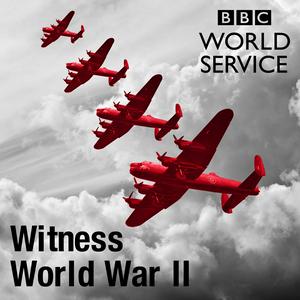
Obtenha o aplicativo gratuito radio.net
- Guardar rádios e podcasts favoritos
- Transmissão via Wi-Fi ou Bluetooth
- Carplay & Android Audo compatìvel
- E ainda mais funções
Obtenha o aplicativo gratuito radio.net
- Guardar rádios e podcasts favoritos
- Transmissão via Wi-Fi ou Bluetooth
- Carplay & Android Audo compatìvel
- E ainda mais funções


Witness History: World War Two history
Leia o código,
baixe o aplicativo,
ouça.
baixe o aplicativo,
ouça.

